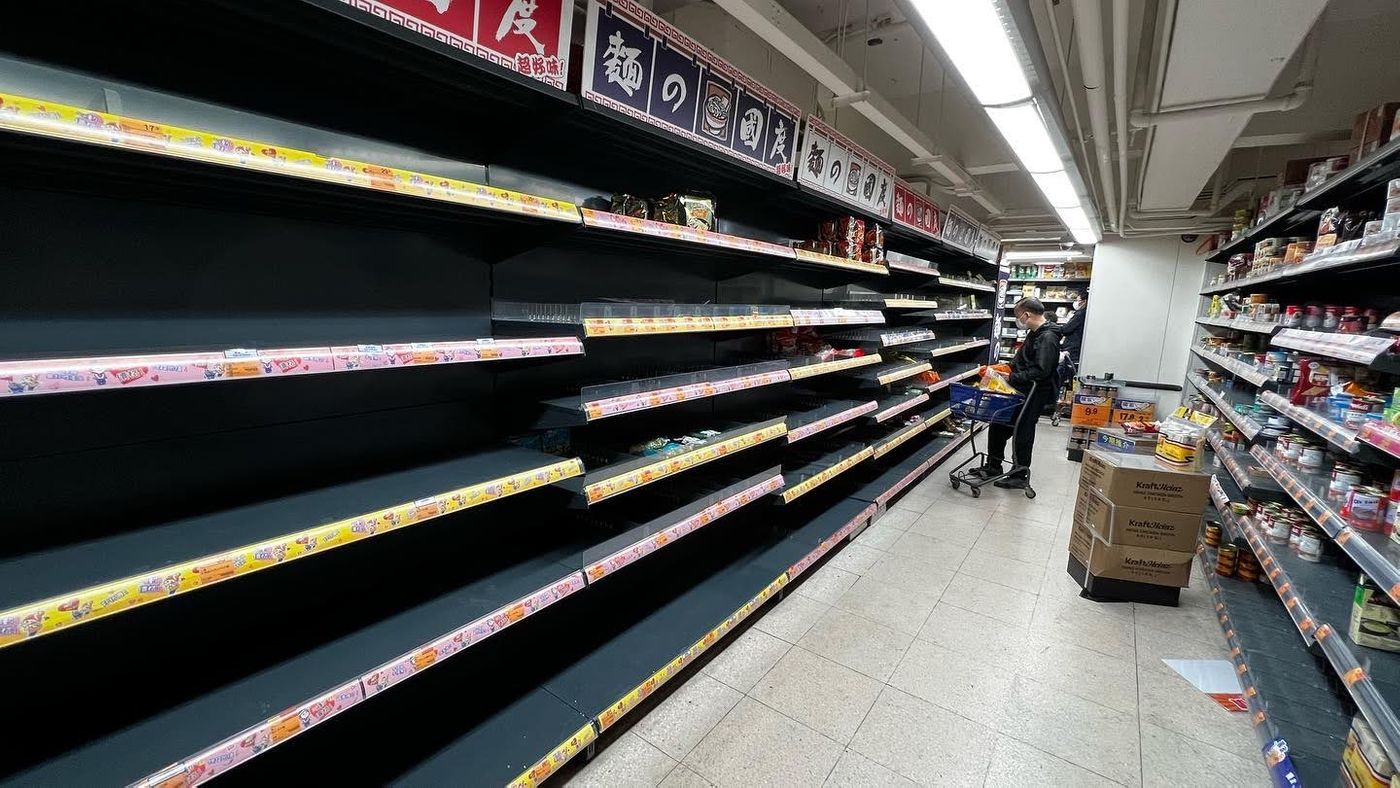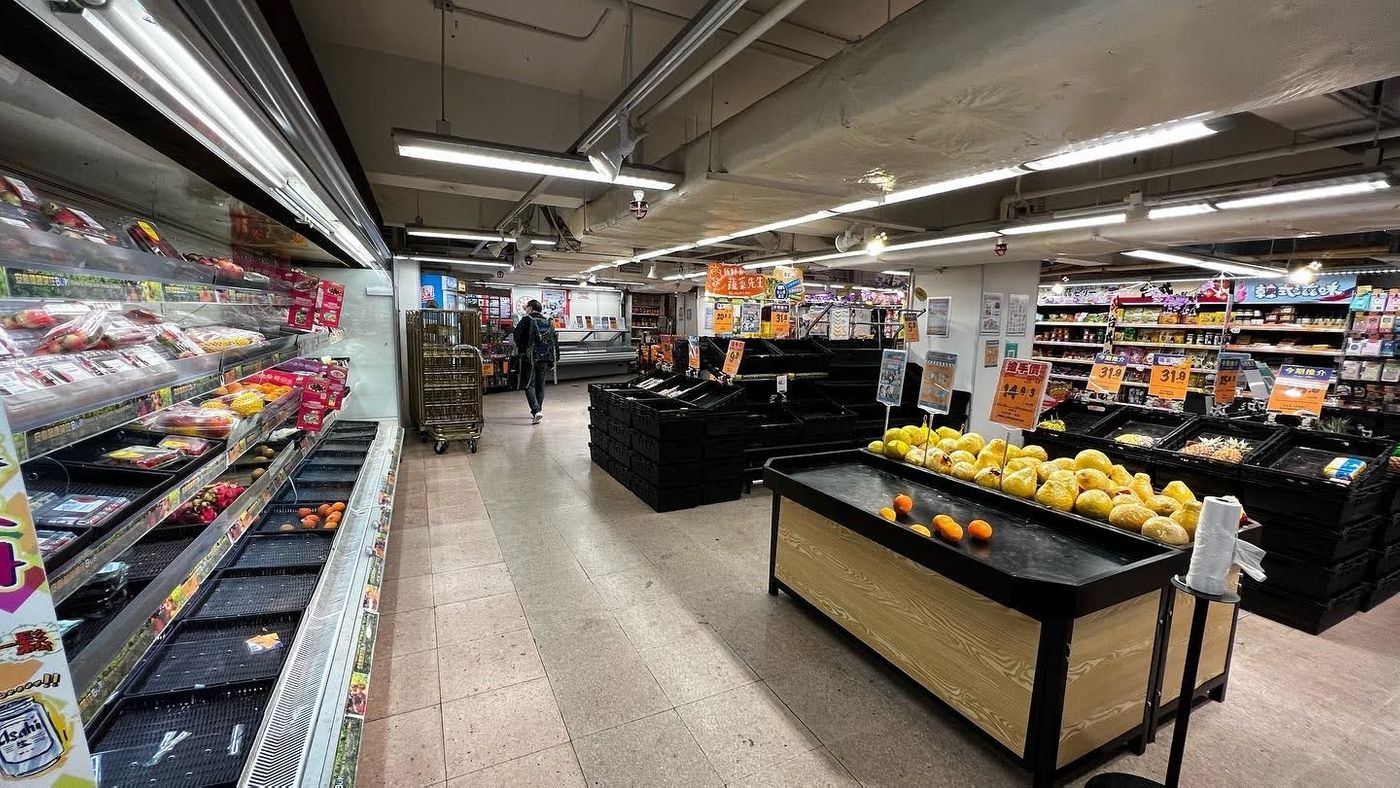Lost confidence in panic buying

Supermarkets and grocery stores all over Hong Kong have been like this for many days in a row. People are running around and trying their best, just to buy daily necessities and food. Yesterday, I was working in a farther area, and I stopped by the supermarket in the department store. I accidentally found that there are many fresh products in the store. Besides, I bought all the things that need to be replenished in the next few days. Maybe the price of the department store is slightly lower. It is high, so there are still goods to choose from. In the end, I took the bus for half an hour, holding two heavy bags of environmental protection bags, and I felt like returning home with a full load.
It is unimaginable that Hong Kong, a self-proclaimed international metropolis, has seen such a scene after more than two years of the new crown epidemic.

People panic buying, more or less losing confidence in the government. It seems that everyone bought so many things and stored them at home, seeking a little comfort in uneasy days.
- The local agricultural production in Hong Kong is not high, and the daily necessities and food for 7 million people are mainly supplied by the mainland and overseas.
- Beginning at the end of last year, the Hong Kong government has been committed to early customs clearance with mainland China to reduce the risk of imported viruses. In order to maintain "zero" (or "dynamic zero" as emphasized later) in the number of confirmed cases, it has decided to tighten the number of international flights. The strong epidemic prevention and quarantine measures of the port and the crew have indirectly led to fewer and fewer flights to Hong Kong, the air cargo capacity has declined, and the supply of goods has been affected.
- Due to the outbreak of the epidemic in Hong Kong, more and more cross-border freight drivers were found to be infected at the Chinese mainland border. Due to the strict zero-clearing policy in the mainland, a large number of drivers were required to be isolated or subjected to quarantine, and the mainland's freight to Hong Kong was also affected.
- The number of confirmed cases has risen sharply. Government officials have said that Hong Kong is not suitable for universal testing. Later, some mainland scholars believe that universal testing is needed. As a result, the tone changed, and in the next two weeks, different officials said their own words. First, they believed that with the help of the central government, they could conduct nationwide testing, but the city did not need to be closed; later, they said that the closure of the city was not ruled out; The test date was originally said to start around March. Later, the media reported that it would be mid-March. The latest statement is that it will start at the end of March.
- In the past two weeks, there have been different opinions on the closure of the city and the nationwide testing policy. So far, the exact plan has not been explained to the public, but the number of infections has reached 50,000 per day, and the arrangements for hospitalization and treatment after diagnosis are also very chaotic. People tend to care more about medical places than they get sick, and the ever-changing measures make people less and less confident in the government.
- Due to the strict two-person gathering restrictions and "vaccine passes", the flow of people on the streets and shopping malls has plummeted, and many restaurants and shops have to be closed. Most people have to choose to eat three meals a day at home.
- The number of confirmed cases is in the tens of thousands every day, and employees from all walks of life are infected or become close contacts and cannot go to work. Transportation and delivery, abattoirs and wholesale food markets, market stall owners and shop assistants are also affected. The shortage of manpower has disrupted the situation. The original local logistics arrangements, chain restaurants and supermarkets will also reduce their services. The fastest delivery schedule for online stores will be two weeks later. Citizens frequently rush to buy food every day.
Is disturbing people's lives a natural disaster or a man-made disaster? God knows.
Articles are uploaded to the personal website and square grid synchronously
Like my work? Don't forget to support and clap, let me know that you are with me on the road of creation. Keep this enthusiasm together!

- Author
- More